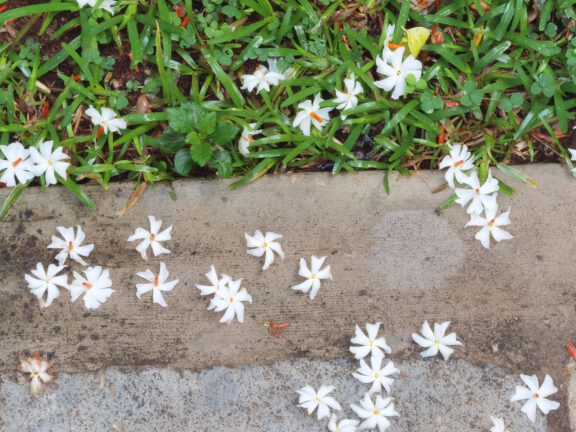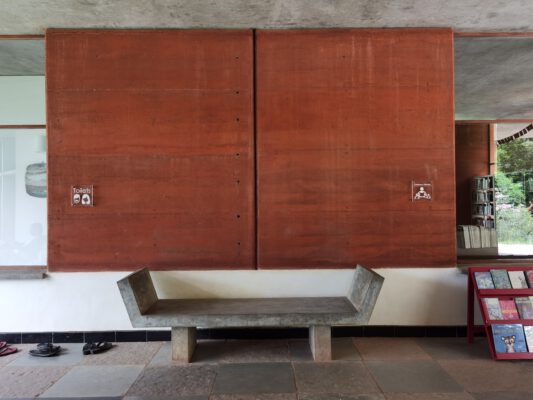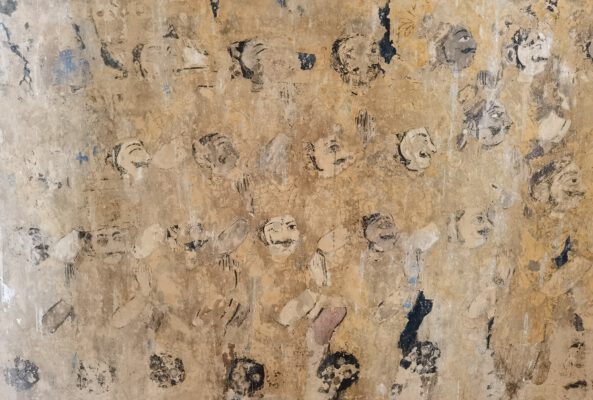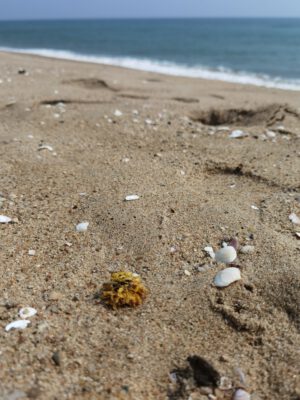"the eye thinks even more than it listens" (Deleuze)
INow I remember that before I started reading Deleuze, I had been working on a process aesthetic. I made a 100-page manuscript with notes, quotations, structural sketches. I wanted to get away from the idea that art consists of objects that are perceived in a particular way, because this gives rise to two essential strands of thought: 1) what constitutes an object that we call art, and 2) why is the perception of art different from everyday perception? There are countless theories on both strands, some combine them, some opt for one, others for the other.
But somehow I was always suspicious of this: the relation Art object perceiving subject. There is this dualism again, which some have tried to radically resolve by choosing one of the two sides of this relationship at the expense of the other. A dispute between idealism, materialism and empiricism. Philosophy, it seemed to me, had become quite bogged down. The field of philosophical aesthetics is not wrongly considered unmanageable, sometimes soft and inconsistent, something for philosophers who enjoy the adventure of thinking more than the search for truth. And that's what it's all about, the pleasure.
Art
I have found a way to do this without having to abandon aesthetic thinking. It seemed to me that the only way to counter this dualism was a different ontology. An ontology of process. I read H. Bergson and N. Whitehead and searched the art world for works of art that addressed this. Works of art that had time as their medium suggested themselves: Film and interactive installations. It seemed to me that an essential aspect of this art was the transition from one state to another, from one image to the next ("Film is the truth - 24 times a second", Godard).
Or between letters. Here I found Paul de Marinis Messenger (1998) and contrasted this with Nancy Holt & Richard Serra's "Boomerang" (1974). Both are works that stretch language to such an extent that the spaces between the letters and words become perceptible. A deeper reflection then showed me that these spaces are actually just as meaningless as the letters and words themselves. Meaning, sense, statement, beauty, reflection of - what exactly? They point to the process of thinking and communication itself. For me, this was the approach to art that is not based on any kind of representation. Because here, too, in this fatal concept of representation is the fall from grace of dualism.
"This is the dark thought I have had about representation for so long: we are immersed in it and it has become inseparable from our condition. It has created a world, a cosmos even, of false problems such that we have lost our true freedom: that of invention." (Dorothea Olkowski, p.91)
It was this sentence that suddenly opened the door to a different way of thinking for me. I wanted to go back to the origin, the origin of language and expression, not as something strictly defined, but as an act of creation.
Process aesthetics
This creative act is a process that always remains a process, it does not produce an object or subject, but a never-ending process. Creating art, receiving art, documenting and preserving art are all just phases of a process within which what we call art manifests itself in different ways. There is no art, only an aesthetic process, the reflection on which I call process aesthetics. As I mentioned above, I had gotten myself quite tangled up.
In essence, however, I hold on to the direction of thought, and found a kind of echo in the thoughts of Gilles Deleuze:
"Something in the world forces us to think. This something is not an object of recognition, but a fundamental encounter." Gilles Deleuze - Difference and repetition p. 139
This encounter, what is it? On an everyday level, we are familiar with it when a work of art somehow speaks to us, whatever that may mean.
I think that thinking about process aesthetics and Deleuze's adventure have now led me to the Upanishads. Here, in a cyclical and interacting thinking, the self encounters myself. It is perhaps also precisely the tautology that is at the heart of idealistic theories of self-consciousness such as Hegel's.
The whole thing is a process that has no essential meaning at any time, it stands for nothing, it represents nothing, it merely exists in order to experience itself.
Om Namah Shivaya
Olkowski, Dorothea. Gilles Deleuze and the Ruin of Representation. Berkeley: University of California Press, 1999.








